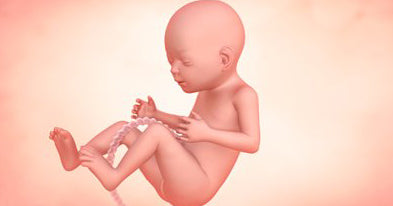
Help your baby develop in the twenty-first
week of your pregnancy
In week 21, continue to eat healthily as your baby’s digestive system and taste buds continue to develop.
What’s happening this week?
This week, your baby continues to grow, and his or her organ functions continue to develop. Also, your baby starts to swallow amniotic fluid, and this may help in the development of his or her digestive system.
He or she swallows much of the fluid and the rest is passed out unabsorbed as far as the large boweli. This week, brain neurons will continue to make connections that are shaped by sensory experiences and supported by the nourishment you provide through foods you eat.
Your baby’s bones are getting stronger and longer, helping to boost his or her length to around seven inches (18 centimeters). He now weighs about 10.5 ounces (300 grams)i.
What can you expect?
It’s normal to frequently feel hungry at this pregnancy stageii; after all, you’re carrying a growing baby inside you.
It’s normal to frequently feel hungry at this pregnancy stageii; after all, you’re carrying a growing baby inside you. Try to avoid satisfying these hunger pangs with junk food; and instead, have a few healthy and delicious recipes and snacks on hand such as nuts, fruits, or yoghurt. Nutritious meals that are easy to prepare will make it convenient to satiate your hunger and nourish your baby at the same time.
What can you do to support your pregnancy?
You might be experiencing food cravings during your pregnancy. Research indicates that chocolate, sweets of some kind and citrus fruits and juices are examples of the common cravings during pregnancyi.
While you respond to those cravings, try to stick to healthy snacks that have protein (e.g. nuts and dairy products) which will benefit baby and help keep your energy levels up at the same time. Also, eat foods that contain choline (e.g. eggs, nuts, and milk), which will help support your baby’s brain development.
Remember that the flavours of the food you eat will end up in the amniotic fluid that your baby swallows. So eating healthy food now could help your baby develop a taste for them after he or she is borniii.
Mums-to-be, do get lots of rest whenever you can and ask your partner for plenty of back and foot rubs to soothe any aches and pains you might feel at this stage in your pregnancy. This will certainly help ease away any anxiety you might be feeling.



